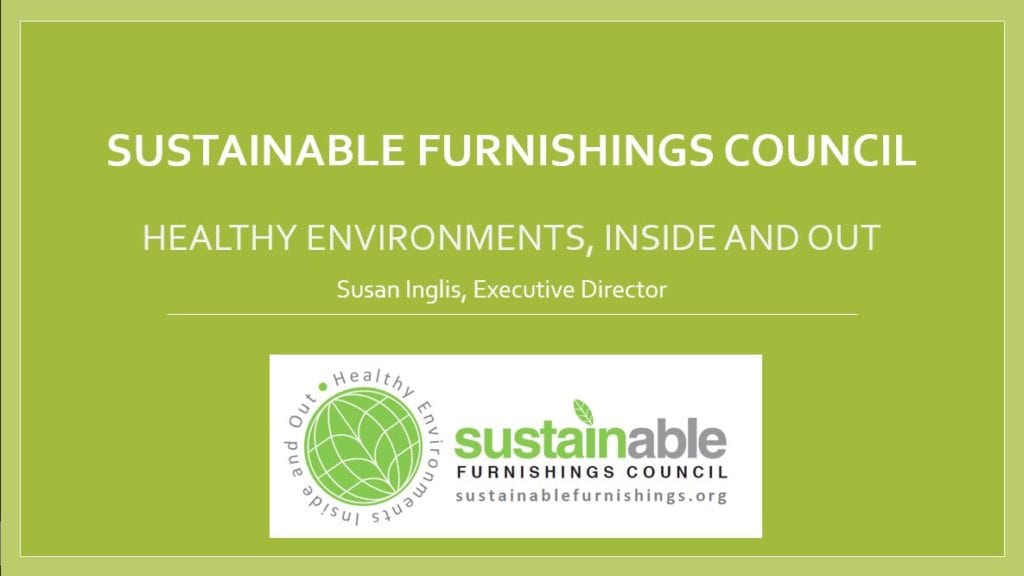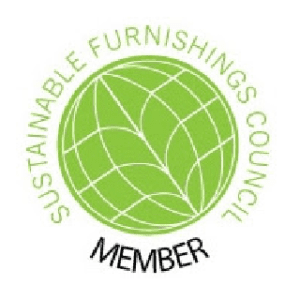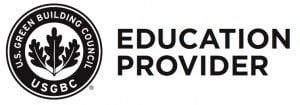
Sustainable Furnishings Council
Healthy Environments Inside and Out
The seal of the Sustainable Furnishings Council (SFC) is not in itself a certification. It is, on its face, an emblem of membership in the organization, consisting of companies involved in home furnishing industries, which also includes mattresses and bedding. Ecolabel Index says that no verification or certification of claims is required, only registration and a public commitment (which is verifiable) to sustainability, as well as to improvement in that area.
On higher plains of commitment are three levels of Exemplary Membership – Silver, Gold, Platinum. The commitment extends to transparency and continuous improvement.


The Sustainable Furnishings Council History
The Sustainable Furnishings Council was founded in 2006 by Gerry Cooklin, the head of South Cone, a furniture company in High Point, North Carolina. He had been concerned about sustainability for a long time, but after encountering ancient juniper trees at 11,000 feet high in the Sierras, he decided to put it to work in his business. At the High Point Furniture Market he shared his passion with other furniture executives, and SFC started with 70 members. It now has over 400.
Sustainability and the Environment
The focus of the Sustainable Furnishings Council extends from how raw materials are collected to how finished products are delivered and set up. At the starting point is whether harvesting of wood and other biological materials is a self-sustaining process. This means not destroying rainforests and mountain timberlands, but balancing harvesting with new and continuing growth. For example, member firm Atlantic Furniture uses wood from rubber trees cut down after their latex-yielding lifetime. These trees are replaced by planting new ones.
For the mattress industry, sustainability extends to cotton, linen, soy, wool, rayon (made from wood), wool and latex. A number of mattress manufacturers, such as Naturepedic, and Saatva are members of Sustainable Furnishings Council. The Specialty Sleep Association is also a member.
Another concern of SFC is air pollution, both outdoors and indoors. A primary concern is outgassing of volatile organic compounds (VOCs). These can come from treatments and finishes on wood, adhesives, hard plastic parts of furniture, and upholstery foams.
The goals of Sustainable Furnishings Council are:
- To raise awareness of the sustainability issue
- To assist companies in adopting good practices
- To serve as an information clearing house
- To provide a symbol of assurance for consumers
Public Concerns
A slogan of the Sustainable Furnishings Council is, “Good Business that is Good for Business.” Public awareness of environmental and health issues in furnishings (including beds) is rising, so manufacturers and marketers who share these concerns are more attractive to a growing segment of consumers. And online writers are telling consumers to ask for products that are healthful, safe and sustainable to increase corporate awareness of the demand.
In 2008, SFC launched an advertising campaign, including tagging in the stores, to increase the visibility of retailers carrying sustainable and environmentally friendly goods.
Alliances
The Sustainable Furnishings Council has alliances with several “green” organizations. Among them are Rainforest Alliance, World Wildlife Fund, US Green Building Council, and the American Sustainable Business Council.


![]()

Activities
The Sustainable Furnishings Council works to educate member firms on environmental and health issues and how to apply them to their products and services. SFC also offers consulting services in several areas:
- Waste Reduction
- Sales & Marketing
- Sourcing
- Greening manufacturing and retail operations
- Life Cycle Assessment
- Environmental Product Declarations
Summary
While seals of the Sustainable Furnishings Council may have a low level of confidence due to being membership with initially un-certified standards, they do indicate at least an acknowledgement of environmental issues and a pledge to practice sustainability. The confidence is higher when the SFC seal is accompanied by third party certifications

